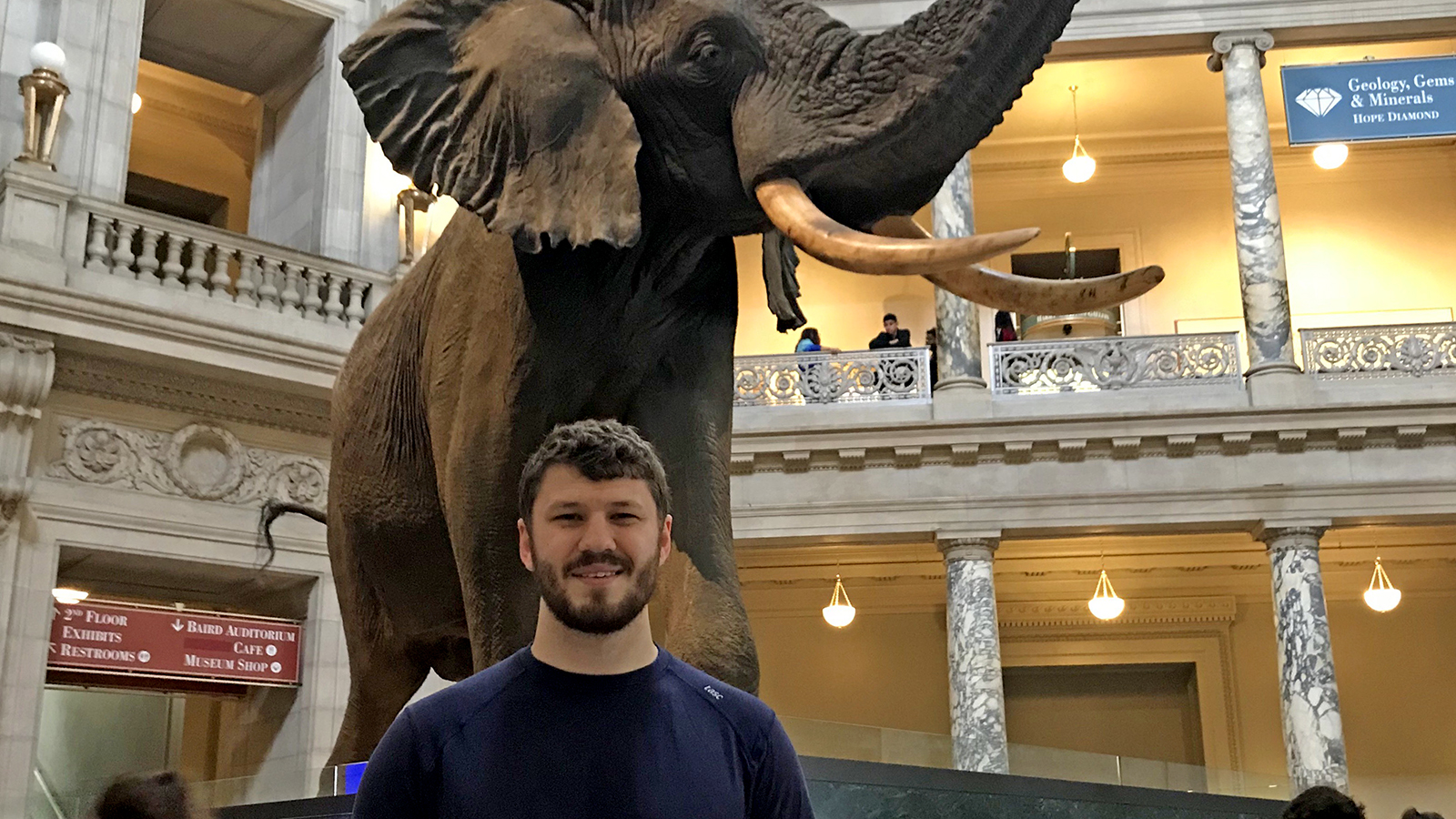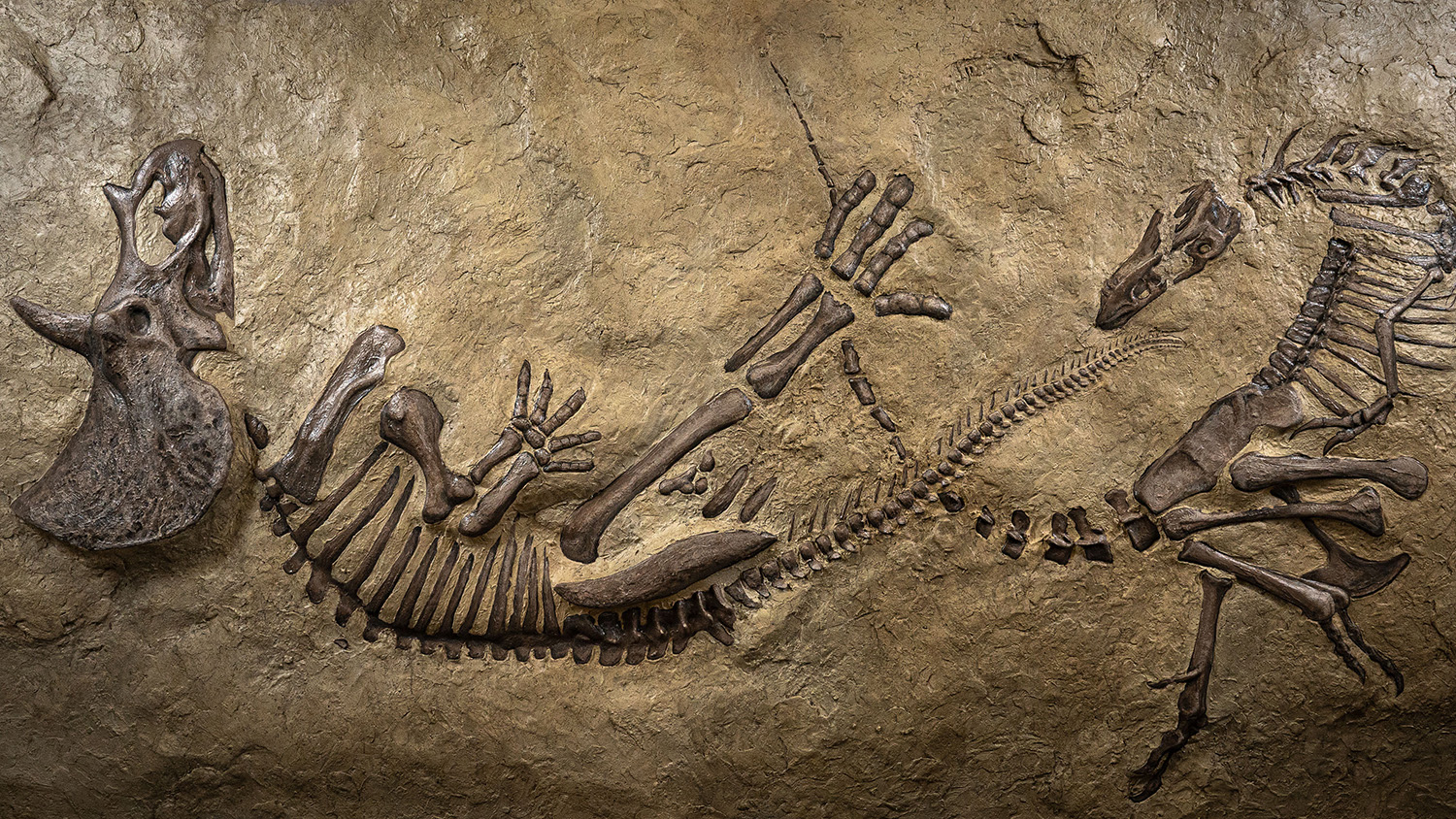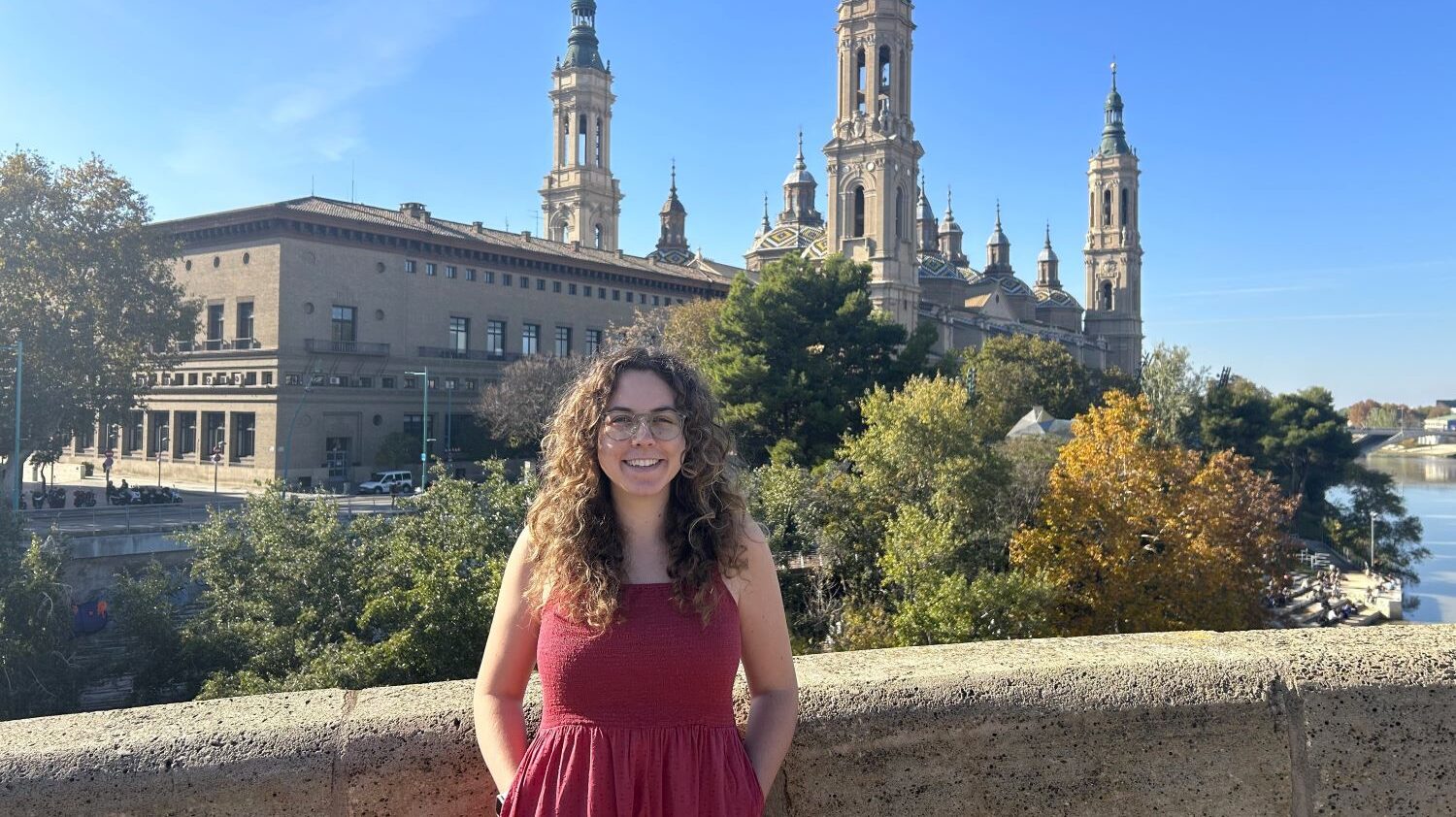Student Spotlight: Harrison Payne

Meet Harrison Payne, a senior majoring in philosophy, physics and mathematics.
Hometown: Hickory, NC
Sample Courses:
- Ethics
- Metaphysics
- General Relativity
Activities:
- Undergraduate research in Philosophy with Dr. Marina Bykova: 19th Century Idealism from Kant to Nietzsche
- NC State Philosophy Club
- NC State Society of Physics Students
- American Association of Physics Students
- American Physical Society
- American Chemical Society
Honors:
- Robert S. Bryan Philosophy Prize (for outstanding senior in philosophy at NC State University)
- NC State Honors Program in Philosophy
Previous Education: Associate Degree of Science, Catawba Valley Community College
Postgraduate Plans: Currently applying to Ph.D. programs in philosophy with an intent to pursue a specialization in philosophy of physics.
Why did you initially select Humanities and Social Sciences?
It seemed to me that the College of Humanities and Social Sciences succeeded in creating an environment conducive to learning, and learning was my primary goal when I was choosing where to go to college. I knew my interest in philosophy would be best nourished by becoming a student in Humanities and Social Sciences. I should also note the degree of flexibility allowed in this college. The humanities are generally less linear than other disciplines, and as a result it was really refreshing for me to be able to take some of my classes in the sequence I wanted, and not have my schedule strictly dictated to me.
What has been your favorite Humanities and Social Sciences courses and why?
I especially appreciated Dr. David Austin’s Philosophy of Science course and Dr. John Carroll’s Scientific Methods course. Both courses radically changed my understanding of science and its relationships with disciplines that are typically understood to be a part of the humanities. More specifically, Dr. Austin’s course attempts to draw the student into considering what the difference really is between science and religion. In the process of doing so, I was surprised at how many of my presuppositions were false, and since then I have been very careful about what I assume. Dr. Carroll’s course gave me a better understanding of philosophy of science in general. Particularly intriguing is the beginning, more historical aspect of the course. I highly recommend one take these courses if possible – a thoughtful person will get a great deal out of them.
What do you enjoy most about Humanities and Social Sciences and why?
Besides the individual classes themselves, I enjoy most the availability of public lectures on various topics related to the humanities. They offer an opportunity to students to expand their knowledge and be exposed to new topics that may be of interest. I have especially appreciated the World Philosophy Day Lecture. There are always great speakers, and I end up leaving with something interesting to think about.
What has been your biggest challenge at NC State?
As a triple major there have been times where I have felt pretty overwhelmed with my academics. I suppose my biggest challenge has been learning how to successfully juggle so many things while still being able to get everything done. It has taught me a great deal about organization and helped me in understanding my own limits, so I would not have changed it.
Has any interaction with professors really stuck out for you?
Yes, absolutely. There have been multiple people in the staff and faculty of the philosophy department who have helped me tremendously. In applying to graduate schools, I have relied very heavily on the advice of professors, specifically Dr. Carroll, in the philosophy department. I am incredibly thankful for all the time they have spent helping me at no real benefit to themselves. Also, I would be remiss if I did not mention how pleasant my interactions have always been with Humanities and Social Sciences faculty. This really is a welcoming place.
What advice would you give incoming students?
Try really hard in your classes. I think most people will be surprised what they are capable of and how much they will learn. Build a small library of physical books that matter to you. They can remind you of things you have forgotten and offer a source of inspiration. Also, build relationships with your professors. They got where they are because they are intelligent and knowledgeable. They can very often offer unique perspectives and data to students that will be invaluable as the student is planning their future.
- Categories:


